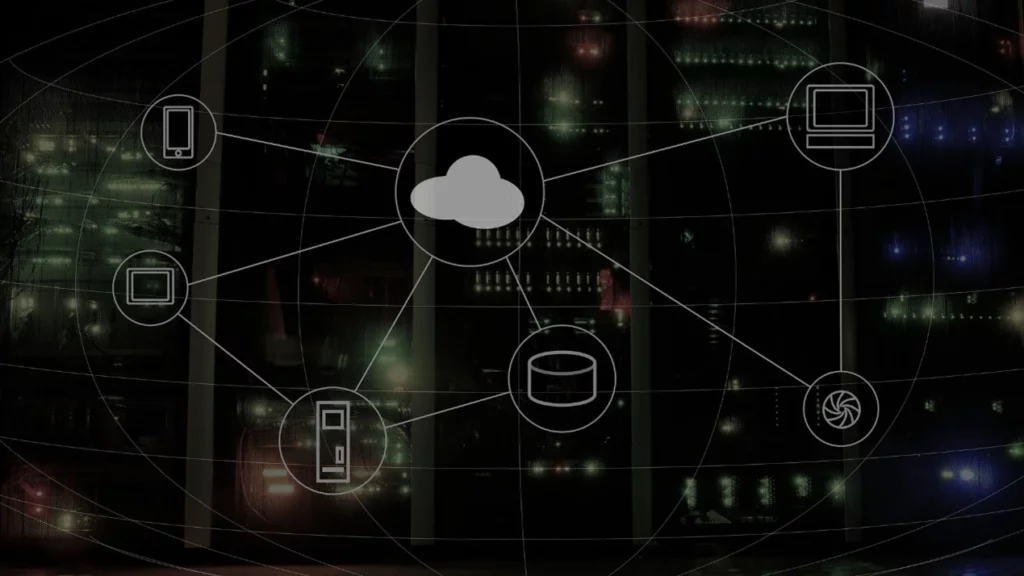In the fast-paced modern business world, efficiency and productivity for enterprises are crucial. As they need effective management of their resources, processes, and data to remain competitive. Managing complex processes, data, and resources across different departments can be a daunting task. ERP systems have emerged to provide robust solutions that enable companies to integrate and streamline their business functions. And to improve different aspects of business operations.

What are ERP systems?
ERP systems are a central nervous system, that that connects different departments, such as financial management, human resources, sales, manufacturing, storage, and more. They offer a comprehensive software solution designed to streamline and efficiently integrate business processes across different sections and functions within the organization. By integrating data and providing a comprehensive vision, facilitating information sharing, and real-time collaboration, ERP systems enable companies to make wise decisions, enhance collaboration, and improve processes.
You may also like: What is VPN? How It Works, Types of VPN
How ERP systems work
ERP systems work by automating and improving business processes. Here’s how it works:
· Enter Data
Users enter data into the ERP system through different modules. For example, the finance team records financial transactions, while the sales team records customers’ orders.
· Data Processing
ERP processes this data in real-time, updating the central database. The primary objective is to automate tasks, reducing manual intervention and errors and accelerating operations.
· Sharing information
Data entered into a particular section becomes immediately available to other sections. This facilitates collaboration between functions and data-based decision-making.
· Preparation of reports and analysis
These systems provide powerful reporting and analytical tools. Users can create custom reports, analyze trends, and get insights into an enterprise’s performance.
· Why enterprises need ERP
These systems offer robust software solutions designed to integrate and improve different aspects of organizations. Perhaps their most prominent advantages are:
· Simplified processes through ERP
These systems automate and streamline basic processes. Thus, dispose of manual and time-consuming tasks. By integrating sections and functions, it ensures smooth data flow and improves overall operational efficiency.
· Improved data visibility and decision-making
These systems provide a centralized database for different departments. Users have access to accurate and up-to-date information, enabling decision-making and strategic planning, thus responding quickly to market changes.
· Improved Customer Relations Management
Customer Relationship Management (CRM) modules integrated with ERP systems facilitate effective customer management. Organizations can track customer interactions, manage sales lines, and then offer personalized experiences, thereby improving customer satisfaction and retention.
· Scalability and flexibility
ERP systems are designed to accommodate business growth and changing needs. They therefore provide scalability options that allow enterprises to add or modify functions as their requirements evolve. This flexibility allows companies to adapt to market requirements and maintain their competitiveness.
· Audit required in ERP
These systems often have features that support adherence to industrial regulations and standards. By automating processes and creating accurate reports, institutions can ensure compliance with legal and regulatory requirements. This reduces the risk of sanctions and non-compliance.
ERP Systems Challenges
ERP implementation is a major task that requires careful planning and implementation. Organizations must take into account factors such as system selection, data entry, user training, and change management for example. Challenges may therefore include resisting change, complexities of integration, as well as ensuring data security. It is also necessary to engage stakeholders and thus conduct a comprehensive analysis of the enterprise’s needs, in addition to collaborating with experienced implementing partners to ensure the successful deployment and adoption of the ERP system.
ERP systems have revolutionized the way organizations manage their operations. This enables it to achieve higher levels of efficiency, streamline processes, and enhance cooperation. By integrating data, automating processes, as well as integrating different sections. These systems empower companies to make appropriate decisions, adapting to ever-changing market conditions. ERP implementation can therefore be a major task, but the benefits it brings far outweigh the initial investment, ultimately leading to long-term success.


